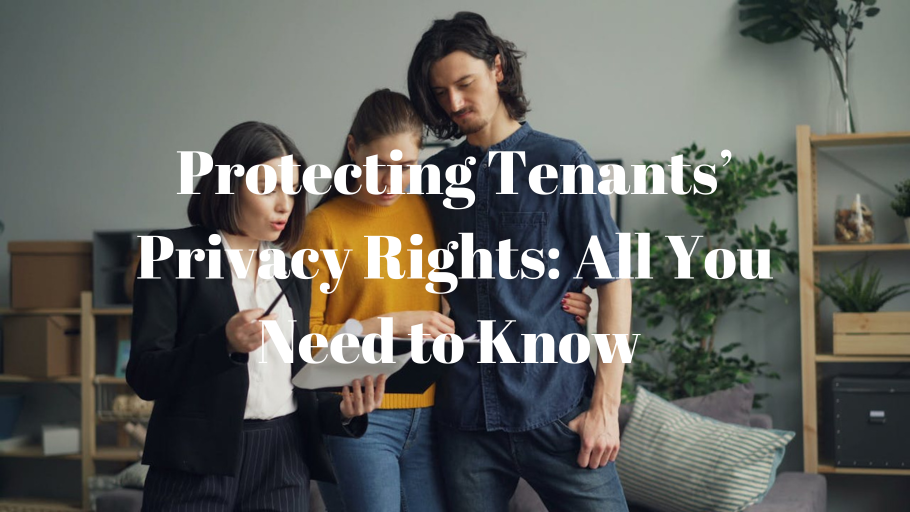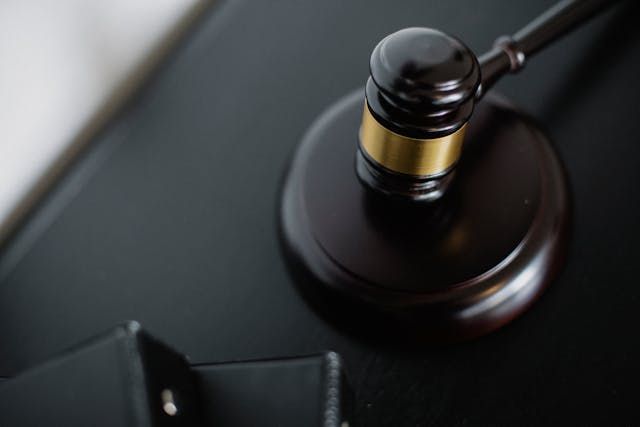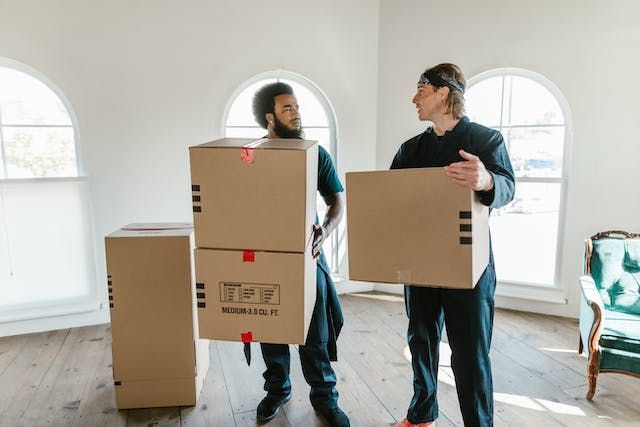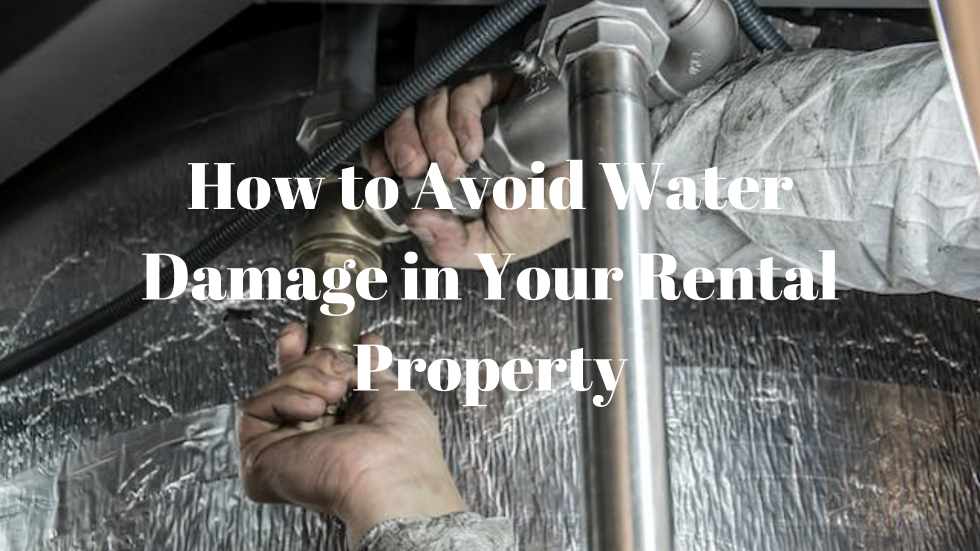Protecting Tenants’ Privacy Rights: All You Need to Know

Key Takeaways
- Right to Privacy: Tenants are entitled to enjoy their rental units without unwarranted intrusions. Landlords must respect this right to ensure a comfortable living environment.
- Landlord Entry: Landlords can enter rental units for specific reasons, such as repairs or inspections, but must provide proper notice—typically at least 24 hours—and obtain tenant consent, except in emergencies.
- Surveillance: Installing cameras inside a tenant's unit without consent is a violation of privacy rights. Surveillance equipment should only be placed in common areas and tenants must be informed.
- Handling Personal Information: Landlords have access to sensitive tenant information, including identification and financial records. It's crucial to store and handle this data securely to prevent identity theft or privacy breaches.
- Legal Compliance: Familiarize yourself with local and federal laws regarding tenant privacy to avoid legal disputes and foster trust with tenants.
As a
landlord, protecting your rental property is a top priority—but so is protecting your tenants' privacy. Landlords are legally and ethically obligated to respect the personal space and private information of those who live in their properties.
In this guide, Windermere Property Management is going to help you understand ways to protect your tenants’ privacy rights, fostering a positive landlord tenant relationship.
Why Tenant Privacy Matters
Tenant privacy is not just about courtesy. It's a legal requirement in most states and an important part of a tenant’s right to quiet enjoyment of the property. Violating this right could open the door to complaints, lawsuits, or even penalties.
But when you respect your residents’ space and information, you’re more likely to foster long-term tenancies, receive on-time rent, and avoid unnecessary disputes.
What the Law Says About Entry
One of the most important aspects of tenant privacy is the right to notice before entry. In most states, landlords must provide reasonable notice—often 24 to 48 hours—before entering a
rental unit. This applies even if you own the property.
Valid reasons for entry typically include repairs or maintenance, inspections, showing the unit to prospective tenants or buyers, or responding to an emergency.
Entering a property without proper notice can be seen as trespassing, and repeated violations can lead to serious consequences. Always check your state or local landlord-tenant laws for specific notice requirements, and make sure they’re included in your lease agreement to avoid misunderstandings.

Handling Emergencies
While most access requires notice, emergencies are the exception. If water is leaking, there’s a fire, or a smell of gas is reported, you’re allowed—and expected—to enter the property immediately to handle the situation. The safety of the property and its occupants takes precedence.
However, once the
emergency has been handled, it’s good practice to inform the tenant about what happened and what you did. This helps preserve transparency and avoid unnecessary tension.
Surveillance and Security Devices
Technology has made it easier than ever to install security cameras and monitoring systems around your rental property. But as a landlord, you must be cautious.
Surveillance is only appropriate in common areas such as building entrances, parking lots, or laundry rooms. You may never install cameras inside the unit or in private spaces like patios or balconies that are for the tenant's exclusive use.
Any surveillance system must also comply with wiretapping laws. Audio recording is restricted in many states unless all parties consent, so avoid placing devices that capture sound unless you have the proper permissions.
Being upfront about your security measures is essential. Let your
tenants know where cameras are placed and why. Transparency builds trust and shows you’re prioritizing safety, not spying.
Collecting and Handling Personal Information
When tenants apply to rent a property, they often provide sensitive information, including Social Security numbers, employment details, bank account information, and rental history.

This information must be protected. Store it securely, and do not share it unless legally required or permitted by the tenant. You should also avoid discussing one tenant’s personal details with another. Gossip or carelessness can lead to privacy breaches, and even unintentional violations can have legal consequences.
If you use property management software or cloud-based storage, ensure these platforms are secure and follow data protection best practices. It’s your responsibility to keep your tenant’s personal information safe.
Respecting Quiet Enjoyment
Tenants have the right to quiet enjoyment of their homes. This means they should be free from unnecessary disturbances, such as frequent visits,
loud construction, or intrusive behavior from the landlord or others you allow on the property.
Respecting quiet enjoyment means more than just avoiding noise. It also involves giving your tenants space to live their lives without feeling watched or micromanaged. Avoid showing up unannounced, driving by the unit frequently, or communicating excessively. Trust your tenants to live responsibly and address concerns as they arise, rather than preemptively checking in too often.
What Happens When Tenants Move Out?
Privacy doesn’t end the moment a tenant vacates. If they leave behind personal belongings, you may be required to follow specific steps before disposing of or selling them.
Most states have laws requiring you to notify the tenant and hold onto the items for a set amount of time before taking further action.

You should also ensure their personal documents are properly deleted or disposed of, especially if you kept paper copies of rental applications, background checks, or payment details.
Working with a Property Management Company
One of the most effective ways to ensure tenant privacy rights are respected is by working with a professional property management company. Property managers are trained in local landlord-tenant laws and know how to navigate tricky situations involving privacy and access.
Here are some ways a property management company can help you stay compliant and respectful of tenant privacy:
- They implement formal systems for requesting and documenting access.
- They manage sensitive data professionally using secure software and protocols to store tenant information, reducing your risk of data breaches or mishandling.
- They act as a neutral third party, keeping communication professional, timely, and legally compliant.
- They stay current with local laws and trends. A local property manager understands the specific rules in your area and ensures your rental operation follows them.
Final Thoughts
Whether you manage properties yourself or work with a professional property manager, making tenant privacy a top priority pays off in tenant satisfaction, fewer legal risks, and a better overall rental experience for everyone involved.
If you're unsure about the laws in your area or want to streamline your operations while staying fully compliant, hiring a qualified property management company can make all the difference.
Not only do they take the pressure off your shoulders, but they also help you run your rental business with professionalism, care, and integrity.
Contact
Dawson Property Management for assistance.







